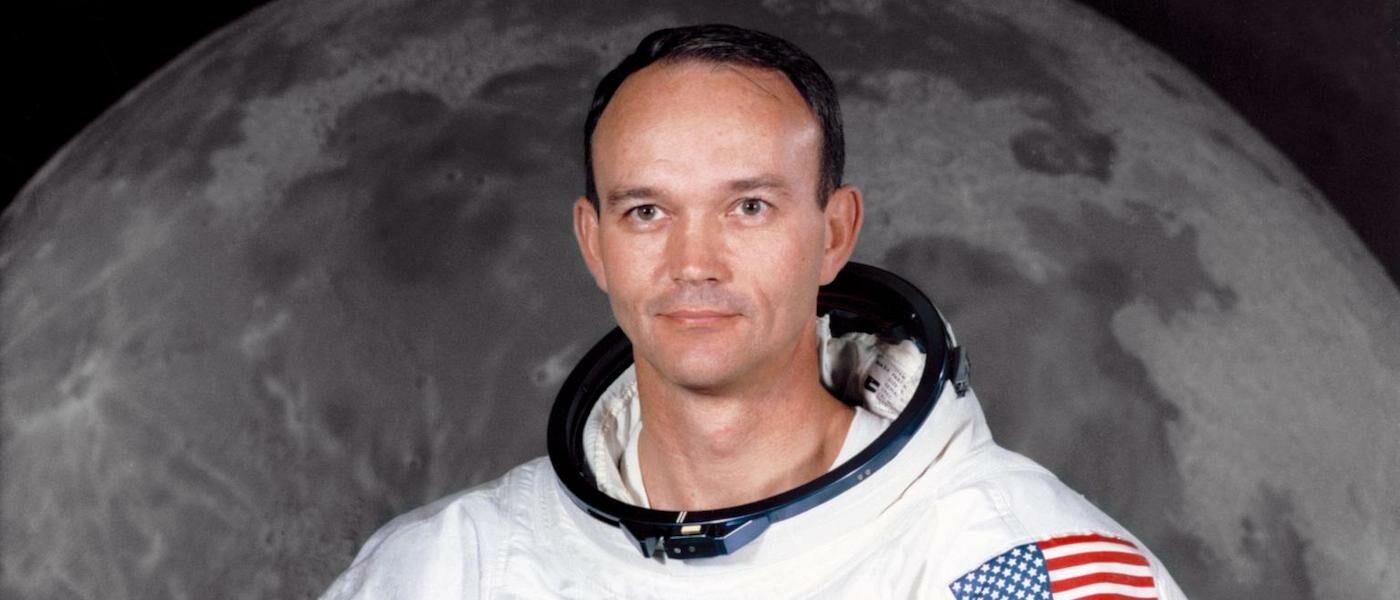R.I.P. Michael Collins, an essential member of the Apollo 11 mission

Liberty Science Center mourns the passing of Michael Collins, an essential member of the Apollo 11 mission that took astronauts to the surface of the moon, and the fourth person in history to exit a spacecraft to work in the vacuum of space.
An incredible, humble, adventurous, and witty man, father, and grandfather, Collins led a full life of 90 years that came to an end April 28, 2021.
The Path to the Moon
Born in Rome, Italy in 1930, Michael Collins was the son of Army Major General James Collins and Virginia Collins. Collins attended West Point U.S. Military Academy, earned a Bachelor of Science, and enlisted into the Air Force. There, Collins flew fighter jets, traveled overseas on assignments, and took a postgraduate course in spaceflight that helped him be selected in the third group of NASA astronauts in 1963.
He wasn’t ready to head to the moon just yet, though!
Some of the first assignments Michael Collins undertook were specializing in spacesuit development and being a backup pilot. Collins then flew on the Gemini 10 mission with astronaut John Young in 1966, a three-day trip into space.
Three years later, Michael Collins would accompany crewmates Neil Armstrong and Buzz Aldrin on the Apollo 11 mission that took men to the surface of the moon for the first time.
While his two fellow astronauts descended to the lunar surface, Collins remained in the command capsule 60 miles above. Traveling at 3,700 miles per hour, Collins experienced something few humans do: true solitude. As his crewmates touched down on the moon’s surface, Collins orbited to the far side of the moon. He was cut off from contact with the NASA team on Earth and the men on the moon. He was truly alone for 48 minutes with the beauty and darkness of space.
As he emerged in his orbit back to the near side of the moon, sunlight blazing, Collins had to prepare for Aldrin and Armstrong to safely ascend back up to him. This was an incredibly important job, and everything went perfectly.
After Apollo 11
The year after the historic Apollo 11 mission, Collins resigned from NASA. He spent a year as the Assistant Secretary of State for Public Affairs, but realized he desired a different kind of career.Collins left that role to become the Director of the Smithsonian Institution’s National Air and Space Museum 1971-1978, managing that museum in the crucial years leading up to its opening on the National Mall in 1976. The museum was home to the Apollo 11 capsule, Columbia, that carried Collins, Armstrong, and Aldrin on their journey to and from the moon. Collins continued on to become the undersecretary of the Smithsonian Institution, Vice President of LTV Aerospace with NASA, and rise to the rank of Major General in the Air Force.
Throughout his career, Collins has been awarded many awards that include the NASA Exceptional Service Medal, induction into the U.S. Astronaut Hall of Fame, a moon crater namesake, and plaques on the Hollywood Walk of Fame. A lover of literature and poetry, Michael Collins also authored many books, including Carrying the Fire: An Astronaut’s Journeys.
Thank you, Michael Collins
"NASA mourns the loss of this accomplished pilot and astronaut, a friend of all who seek to push the envelope of human potential. Whether his work was behind the scenes or on full view, his legacy will always be as one of the leaders who took America's first steps into the cosmos. And his spirit will go with us as we venture toward farther horizons," acting administrator Steve Jurczyk shares.
From all of us here at Liberty Science Center, we thank Michael Collins for helping get us to the moon and beyond! We hope the next time you look up at our beautiful, glowing moon, you will think of him.
